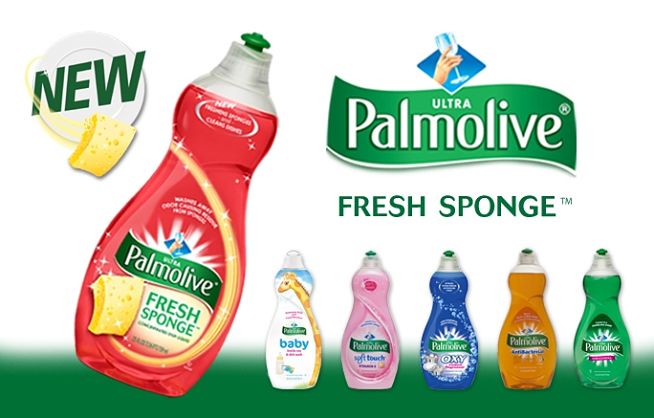For those without automatic dishwashers, we resort to the tried and true method of water, a sponge, dish soap, and a little elbow grease. Although these soaps make our dishes look clean, they can be filled with toxic ingredients that are harmful to our bodies.
Every house contains at least one type of dish soap we use every day. However, most of these products are full of harmful chemicals that can put your health at risk and increase the risk of several diseases and conditions.
Some dish soaps contain too much fragrance, while others are rich in formaldehyde, silicate salts, sulfuric acid and ammonium sulfate. All these compounds are highly dangerous and have been related to several serious diseases.
What are the Dangers of Palmolive?
Palmolive is one such brand you should never use. Owned by Colgate, in 2015 Palmolive sales totaled $16 billion worldwide.
Although Dawn is the best-selling dish soap brand in the United States, Palmolive is in the top 5 worldwide, meaning that a lot of us have been or are exposed to its toxic ingredients.
#1- Formaldehyde
We all know what formaldehyde does. It preserves bodies and other body flesh that would otherwise go bad. It is also present in disinfectant products like dish soaps. Formaldehyde has been found in Ajax, Palmolive and Dawn dish soaps as well as other common household products.
The International Agency for Research on Cancer (IARC) classifies it as a known human carcinogen. The National Toxicology Program, an interagency program of the Department of Health and Human Services, named formaldehyde as a known human carcinogen in its 14th Report on Carcinogens.
A 2009 study by the National Cancer Institute strengthens the link between exposure to formaldehyde and several forms of cancer, including leukemia.
The 30-year study, which tracked the health of nearly 25,000 men exposed to the chemical in industrial plants, is likely to impact a long-awaited Environmental Protection Agency risk assessment of formaldehyde.
The study shows that workers exposed to higher amounts of formaldehyde had a 37 percent greater risk of death from blood and lymphatic cancers, and a 78 percent greater risk of leukemia than those with lower exposures.
For all this, Palmolive says that they are going to take out this dangerous chemical from the products by the end of this year.
#2- Sulfuric Acid
This chemical is considered as carcinogenic and can cause burns upon contact with the skin or sensitive nasal passages when exposed in large amounts. However, The US Food and Drug Administration states that this substance is Generally Recognized as Safe (GRAS).
The International Agency for Research into Cancer (IARC), classified sulfuric acid mists as causing cancer in humans. Specifically, the IARC concluded, “There is sufficient evidence that occupational exposure to strong inorganic acid mists containing sulfuric acid is carcinogenic.”
These conclusions are based on worker health studies in a number of industries involving exposure to sulfuric acid mists. Thus workers in fertilizer plants, steel pickling plants and chemical and soap manufacturing have shown increases in lung, nasal and larynx cancers.
An acid mist is a suspension of acid droplets in air. (Skin or eye contact with sulfuric acid, while dangerous in their own right, do not appear to cause increased rates of cancer.)
#3- Fragrance
Your dish soap doesn’t naturally smell like apples or lemons: it all comes down to the right combination of chemicals. Fragrance can be made up of a combination of 3,000 chemicals that do not have to be disclosed to customers.
That’s according to the online “Transparency List” put out by the International Fragrance Association, an industry trade group.
Research conducted by the Environmental Working Group (EWG) and the Campaign for Safe Cosmetics found an average of 14 chemicals in 17 name brand fragrance products. But it doesn’t stop there — none of these chemicals were actually listed on the label.
According to the Breast Cancer Fund, when it comes to the prevention of cancer, avoiding synthetic fragrance is one of the main ways to help yourself. That’s because the dangers of synthetic scents include hormone-disrupting phthalates and synthetic musks.
What You Can Do?
You can’t control how many dishes you’ll have to do this week, but you can control what kind of dish soap you wash them with. Some of the brands you should avoid are:
- Palmolive
- Dawn
- Ajax
- Meyers
- Legacy of Clean
- Cucina
Is There Any Alternative To Dishwashing Brands?
On the market, you can find several types of organic dishwasher or dish soap. But how to buy an organic one? Is very easy! look for products that contain ingredients that are plant-based, as opposed to petroleum-based.
Most organic dishwashing liquid contains ingredients like coconut oil or olive oil. Also, look for products that are free of foam builders, fragrances, colorants, stabilizers, and preservatives. Check the label for verbiage such as “warning”, “caution”, or “danger” — a clear indication it’s not completely safe.
Another option is made your own organic dishwasher or dish soap. HERE is a easy recipe, that you can make in your home!
Source: GetCancerCure.com








